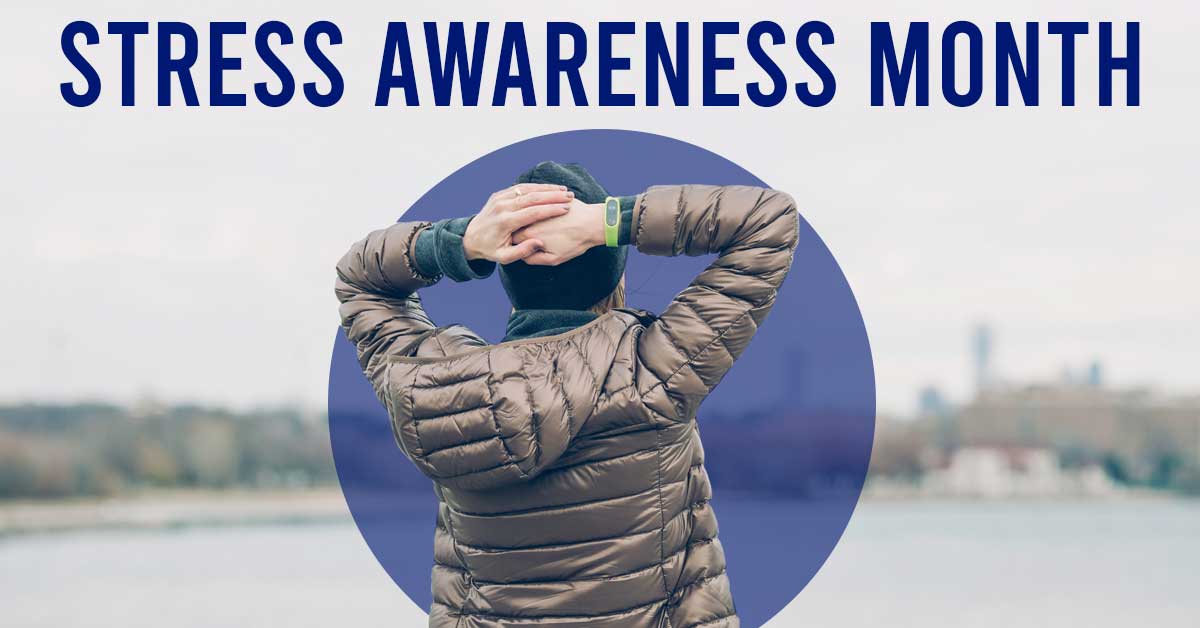Stress Awareness Month has been recognized every April since 1992. Learning to cope with our stress and finding healthy ways to deal with these situations can go a long way in living a healthy and positive life. After all, stress can impact many aspects of your body.
In 1974 the International Stress Management Association was founded to gather experts and research directed towards workplace and personal stress management.
What does Stress Mean to You?
We all experience stress – yet we may each experience it in very different ways. Because of this, there is no single definition for stress, but the American Institute of Stress states the most common explanation is a “physical, mental, or emotional strain or tension.”
A 2017 study from the American Psychological Association found the most common sources of stress reported among Americans were the “future of our nation” (63% of respondents mentioned), Money (62%), Work (61%), political climate (57%), violence/crime (51%).
A 2022 update of this information is equally interesting, particularly for its highlight of Gen Z’s higher than usual stress levels (when compared to other age demographics).
The American Institute of Stress estimates that 55% of Americans are stressed during the day.
For even more detailed information about the role of stress in our lives, view the Harvard School of Public Health’s 2014 study.
Effecting More than Just Your Mind
Long term stress can prove to be more than just a mental issue. From headaches to stomach disorders to depression – even very serious issues like stroke and heart disease can come as a result of stress.
When you are placed in a stressful situation, specific stress hormones rush into your bloodstream leading to an increase in heart rate, blood pressure, and glucose levels. This is helpful in emergency situations, but having this “rush” for extended periods of time can be dangerous and make you susceptible to the issues mentioned previously.
Additionally, stress can impact your ability to get a good night’s sleep. Your sleep plays a key role in your health, both physical and mental, as well as your mood. In this way, stress can really snowball into other complications.
Learn to Overcome Issues You Can Not Change
Sometimes the stress in our lives is not something we have any power to change – it is during these times that Federal Occupational Health recommends you change your approach to situations. Try to…
- Recognize when you don’t have control, and let it go.
- Avoid getting anxious about situations that you cannot change.
- Take control of your reactions and focus your mind on something that makes you feel calm and in control.
- Develop a vision for healthy living, wellness, and personal growth, and set realistic goals to help you realize your vision.
Tips for Coping with Your Stress
The CDC provides some basic ideas to help you cope with stress…
- Take care of yourself – eat healthy, exercise regularly, get plenty of sleep, and give yourself a break if you feel stressed.
- Discuss your problems with a parent, friend, or another trusted source.
- Avoid drugs and alcohol.
- Recognize when you need more help – know when to talk to a psychologist, social worker, or counselor if things continue.
Potentially the most valuable takeaway here is knowing how to talk to others about your stress. This goes both ways, as you need to know how to discuss your problems with others as well as talk to anyone who comes to you with their issues.


